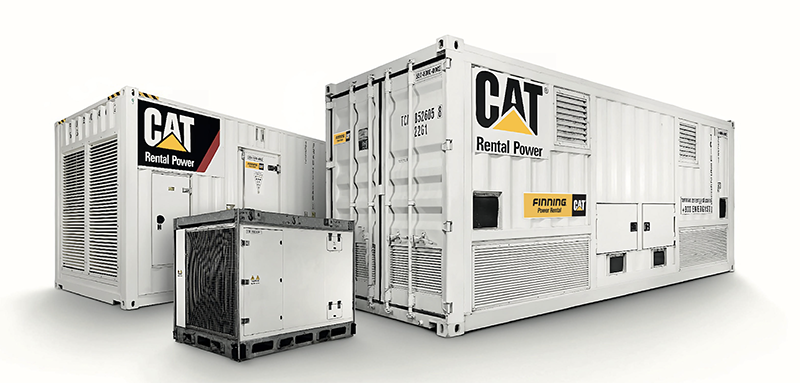FINNING Power Rental has revealed it is seeing a ‘surge’ in demand for load bank testing of backup generators as concerns continue over potential disruption to grid power.
Operators of critical infrastructure ranging from data centres to hospitals must ensure their facilities maintain consistent power. However, Finning said this is becoming more of a challenge as factors including the UK’s unpredictable weather continues to cause problems for the national grid.
The rental company is reporting an ‘unprecedented’ increase in demand for load bank testing from government and private organisations seeking assurance that their backup power systems can perform as required, on demand. In March this year, 100% of Finning Power Rental load banks were in use.
Peter Purdy, head of Finning Power Rental, said, “Backup power systems such as diesel generators are a key component in making sure critical facilities like hospitals can keep equipment powered even when sufficient supply from the grid is not available. This has become a more pressing topic of late due to several factors including the relatively extreme stormy seasons we have experienced, as well as general concerns over how global events might impact power generation.
“The upshot is that a growing number of organisations are expecting to make greater use of their backup generators and so are taking a closer look at whether this equipment can perform as required.”
Finning added that preventative maintenance must be carried out to keep equipment ready. Because backup diesel generators often run at a light load or idle for long periods of time, they might not reach their recommended operating temperature. This can lead to ‘wet stacking’ where unburned fuel accumulates in the engine, reducing its rating, efficiency and life span.
Periodic load bank testing helps avoid this and can also identify engines that may not be able to perform as required.
Peter Purdy added, “Load bank testing is crucial in all back up power applications – especially when the diesel backup system is critical to operational continuity. The risk is that hidden problems from lengthy periods of low use will only become apparent at the worst possible moment when an engine is needed.
“There are no mandatory requirements for load bank testing, but we typically carry this out annually with our customers. How, when and to what level this is performed is designed for their specific needs, with bespoke scripts created to test performance in the way they need to be sure of keeping the lights on.”









